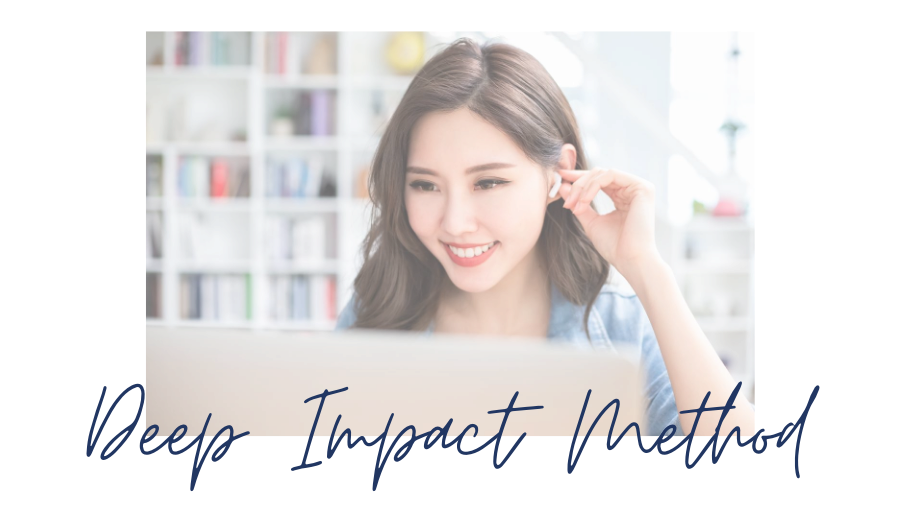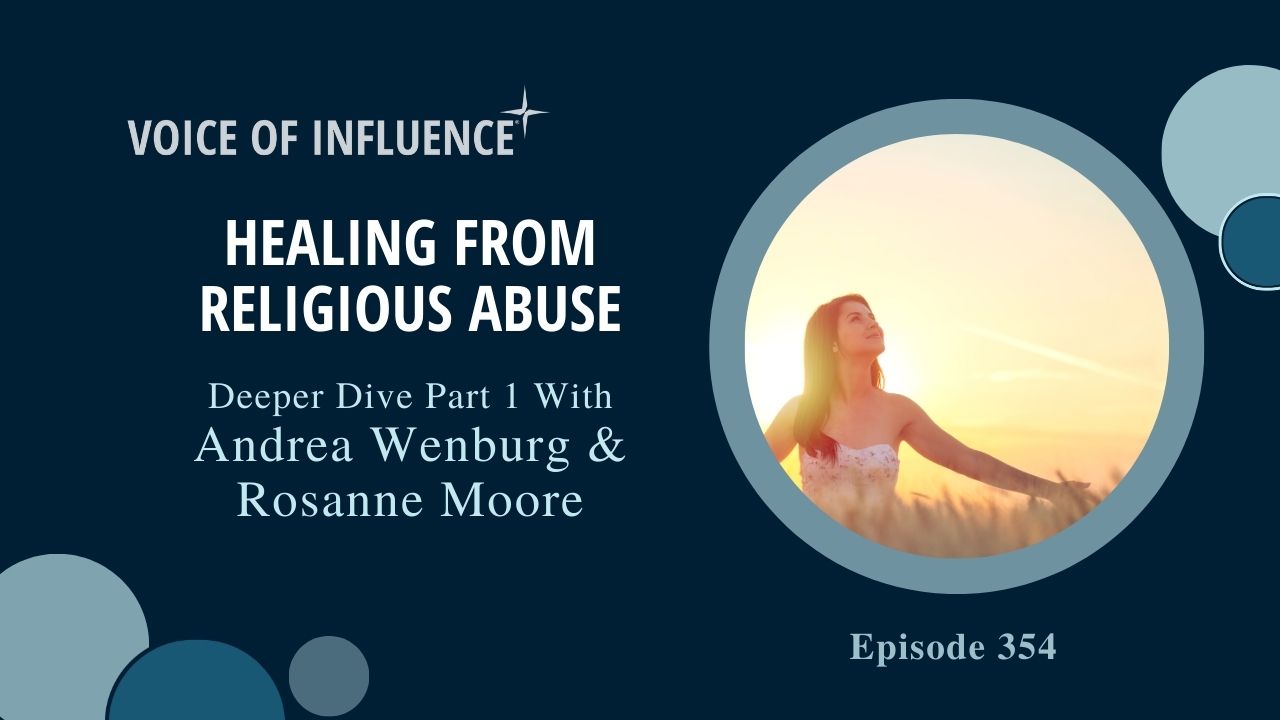Healing from Religious Abuse: Deeper Dive Part 1 with Andrea Wenburg & Rosanne Moore
In this episode of The Voice of Influence Podcast, Andrea Wenburg and Rosanne Moore take a deeper dive into the prior interview with Anna LeBaron, who discussed her experiences escaping a violent polygamist cult. They reflect on cult dynamics and the importance of personal agency, referencing historical and contemporary examples, both religious and secular. They also discuss themes like empathy, respect, and the psychological manipulation that sustains cult-like environments. The conversation emphasizes the moral courage required to break free from coercive control and the critical need for self-examination in personal beliefs.
Links:
352: Escaping & Healing From a Violent Cult with Anna LeBaron & Ruth Wariner
353: Healing from Religious Abuse with Anna LeBaron
Book: The Polygamist’s Daughter by Anna LeBaron
Book: The Sound of Gravel by Ruth Wariner
Hulu Docuseries “Daughters of the Cult”
00:00 Introduction and Episode Recap
01:23 Revisiting Anna and Ruth’s Story
03:18 Introducing Roseanne Moore
03:28 Understanding Cult Dynamics
11:23 Anna’s Memoir: The Polygamist Daughter
23:23 Ervil LeBaron: The Mormon Manson
28:43 Acknowledging Manipulative Tendencies
29:55 Character and Charisma
32:10 The Daughters of the Cult Docuseries
36:05 Empathy and Compassion
39:59 Respect and Human Dignity
49:09 Blood Atonement and Fundamentalism
55:03 Concluding Thoughts and Next Episode Preview
Summary:
In a gripping follow-up to episode 353 of the Voice of Influence Podcast, I sat down with long-time collaborator Rosanne Moore to reflect on my recent conversation with Anna LeBaron—author, survivor, and contributor to Hulu’s Daughters of the Cult. This isn’t just a dramatic story. It’s a deeply human one, full of insights about vulnerability, power, and the responsibility we all carry as influencers and leaders.
If you’ve ever wondered how intelligent, strong people get caught in manipulative systems—or how to ensure your leadership is rooted in integrity—this conversation is for you.
![]() Listen to the full episode above for the deep dive.
Listen to the full episode above for the deep dive.
Anyone Can Be Vulnerable to Manipulation
“There are two primary myths about who gets involved in cults,” Rosanne said. “One is that it’s weak, easily influenced people. But in truth, abusers target strong, capable, intelligent people. Because that’s what gives them power.”
Anna LeBaron’s life exemplifies this. Born into a violent religious cult led by her father, Ervil LeBaron—infamously dubbed the “Mormon Manson”—Anna didn’t choose this life. Yet her journey of healing and reclaiming her voice took decades. As she put it, “It took me 40 years to write my memoir because I needed to heal before I could tell the story.”
We all experience vulnerable moments—illness, loss, transition. It’s not weakness. It’s being human. And it’s in these moments that we must be especially discerning about the influence we allow and the influence we wield.
Charisma Isn’t Character
One of the most chilling takeaways from Anna’s story—and the Daughters of the Cult docuseries—is how charm and charisma are so often mistaken for trustworthiness.
“Charisma is dangerous when it’s used as currency,” Rosanne noted. “A cult leader’s words and actions don’t match—but the followers do mental gymnastics to make them align.”
This calls us to examine our own leadership. Are we allowing others to question us? Are we fostering agency or demanding loyalty? As leaders, we must constantly check whether our influence is rooted in truth or in ego.
Real Leadership Respects Agency
Anna’s father enforced a belief called blood atonement—the idea that killing someone who left the group was actually saving their soul. It’s a stark example, but the core principle shows up in far more subtle ways across workplaces, families, and faith communities: coercive control masked as care.
“Fundamentalism isn’t about doctrine,” Rosanne explained. “It’s about control—rewarding loyalty and punishing dissent. And it removes people’s agency to choose genuine faith, love, or collaboration.”
True influence makes room for choice. It invites—not demands—engagement. Without agency, there’s no real voice.
Conclusion: Voice Without Coercion
These stories remind us why Voice of Influence exists. It’s not about being right or being heard the loudest. It’s about cultivating the kind of voice that empowers others to speak, choose, and grow. A voice of integrity. A voice of invitation. A voice of influence.
![]() Don’t miss the full conversation with Roseanne Moore on the Voice of Influence Podcast. It’s a vital reflection on healing, agency, and ethical leadership.
Don’t miss the full conversation with Roseanne Moore on the Voice of Influence Podcast. It’s a vital reflection on healing, agency, and ethical leadership.
 Give great, effective feedback!
Give great, effective feedback!
This show is brought to you by the Deep Impact Method free course. Handle problems and present changes with care and influence. Register for the free 30-minute course here.

